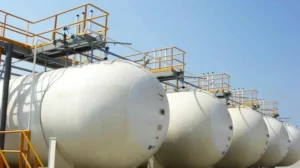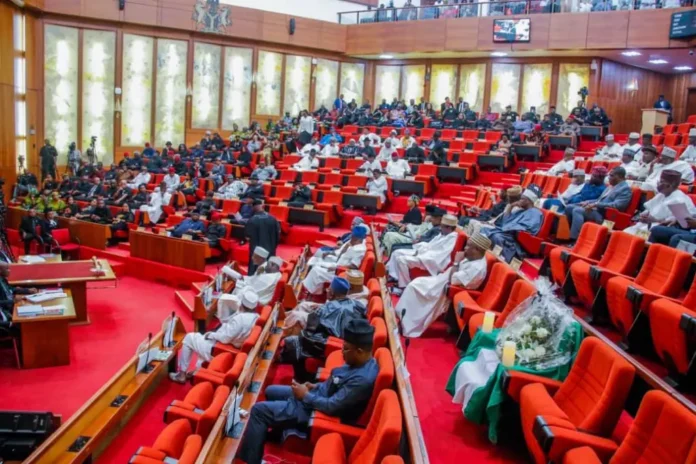On Wednesday, the Senate established an Ad-hoc committee to investigate allegations of hazardous petroleum product imports and the dumping of substandard diesel in Nigeria.
The resolution for the probe, passed as a matter of urgent public importance, followed a motion by Sen. Asuquo Ekpenyong from Cross River State.
The session, presided over by Senate President Sen. Godswill Akpabio, outlined the committee’s terms of reference:
- Examine the pre-shipment and pre-discharge standard test parameters adopted by the Nigerian Midstream and Downstream Regulatory Authority to uncover any loopholes that allowed toxic cargoes into the country.
- Assess the compliance of the NPCL’s Direct Sale and Direct Purchase (DSDP) arrangements with the Petroleum Industry Act, focusing on transparency and accountability.
- Investigate the activities of the Petroleum Equalisation Fund, including payments made to transporters over the past 10 years.
- Inquire into the status of the 22 depots built by the NNPC to eliminate road distribution of petroleum products.
- Engage with industry stakeholders to identify gaps in regulation and improve surveillance and monitoring structures to prevent violations of best practice standards in product importation.
- Consult with the NNPCL to understand its plans and timelines for starting up government-funded oil refineries.
- Investigate how institutions across the importation and distribution chain failed in quality sampling, auditing, port validations, and other responsibilities.
The committee was given 21 days to conduct the investigation and submit a report.

Sen. Ekpenyong, while presenting his motion, recounted that on June 16, 2024, 12 diesel cargoes totaling 660kt were exported by refineries to offshore Lome, Togo, for further distribution to West African markets, primarily Nigeria. He highlighted that the diesel’s quality was below Nigerian standards in terms of flash and sulfur levels. Despite this, the substandard diesel still entered the Nigerian market through ship-to-ship transfers and was discharged into Nigerian facilities.
Ekpenyong added that the diesel was priced below fair market value, constituting dumping under World Trade Organization (WTO) rules. He stressed that the WTO allows measures to protect local industries from dumping, such as anti-dumping duties and import restrictions.

He noted that despite recent revisions to diesel import standards by the Nigerian Midstream and Downstream Petroleum Regulatory Authority (NMDPRA) in line with the Petroleum Industry Act, 2021, enforcement of these standards was lacking. Ekpenyong criticized the MDPRA for persistently issuing import licenses for diesel and jet fuel despite sufficient local production capacity.
The motion argued for a total ban on diesel imports to protect Nigerian industries and refineries, emphasizing that local production could meet national demand. It warned that continued importation would force local producers to shut down operations, resulting in a dump of dirty fuel in Nigeria and negative health and mechanical impacts from substandard diesel.
Senate President Akpabio, commenting on the motion’s passage, highlighted the investment of local investors in the oil and gas industry following the Petroleum Industry Act. He noted that these investors, including the Dangote Group with its $4 billion refinery investment, faced discouragement due to current industry practices.




